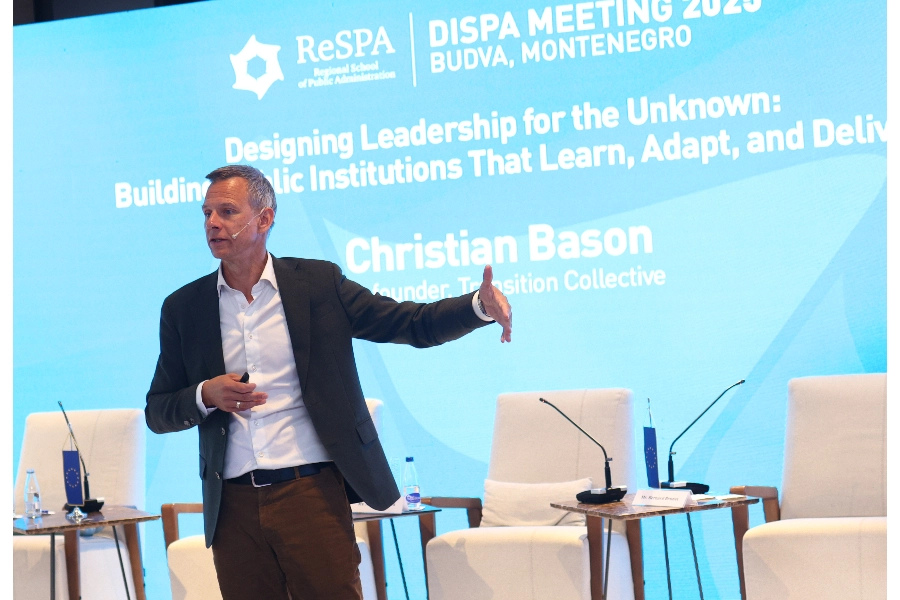
The Future of Executive Development Isn’t Training — It’s Learning
I recently had the privilege of sharing some ideas about the future of executive development in government with DISPA — the Directors of Institutes of Public Administration across the EU. The seminar, held in Budva, Montenegro, was gracefully hosted by ReSPA, and explored a vital question: How can we “future-proof” public servants through better leadership?
From Training to Transformation
Traditional training models—content-heavy, time-limited, and detached from real-world contexts—no longer match the complexity leaders face. Leadership today is less about knowing what to do and more about shaping who we are as leaders, as colleagues, and as citizens.
The Purpose: Enabling Action and Growth
Over the course of my career I have had the priveledge to work with globally leading executive training organizations in the public management space, including the Singapore Civil Service, the Australia New Zealand School of Government (Anzsog), and the European School of Administration (EuSA). In addition, as an advisor, I have been engaged in a variety of research and strategy work in the leadership field with institutions such as Copenhagen Business School Executive Foundation, the University of Copenhagen, the Finnish Innovation fund Sitra, and CEDEP, an executive development organization in Fontainebleau, France.
Increasingly, I find that these institutions, and more, are recognizing that at its core, the purpose of leadership development is not to transfer knowledge, but to enable action and personal growth. The goal is to strengthen self-reflection and identity—to help leaders understand their values, their impact, and their capacity to navigate uncertainty with purpose and integrity.
The Content: Expanding What Matters
Our world demands that leadership development tackle urgent, interconnected themes that are of relevant for public administrations all across Europe:
- Social and planetary wellbeing
- Geopolitical awareness and resilience
- Innovation capacity and psychological safety
- Foresight and futures thinking
- Digitalization and AI literacy
- Ecosystem leadership
These are no longer “nice to have” topics — they are the very foundations of sustainable governance and public value creation.
The Formats: Learning as Experience
We are entering an era where learning becomes immersive, adaptive, and lifelong.
The most powerful executive development experiences now emerge from:
- Lifelong learning models that blend practice and reflection
- Public–private partnerships in leadership education
- Immersive experiences and learning safaris
- Simulations and decision labs for testing future scenarios
- AI-augmented and personalized learning journeys.
The Design: Human-Centered and Experimental
New offerings should be designed like living systems — combining vision and purpose with human-centered design and MVP-style experimentation. By prototyping new content and formats, we can embed rapid learning as executives navigate real challenges, together.
The Essence: Leadership as Hope
Perhaps the most overlooked, yet essential, leadership capacity is the ability to create hope — to mobilize people around shared aspirations for a better future. In times of volatility and fatigue, hope becomes not a soft skill but a strategic resource.
The Shift: From Training to Learning
My biggest takeaway from the rich conversations with DISPA and ReSPA — supported by fresh OECD data on leadership and engagement — is this:
We should speak less about training leaders in government, and more about creating opportunities for learning — individual, peer-to-peer, organizational, and cross-sectoral.
Because the opportunity to grow, both professionally and personally, is what truly drives motivation, innovation, and performance.



